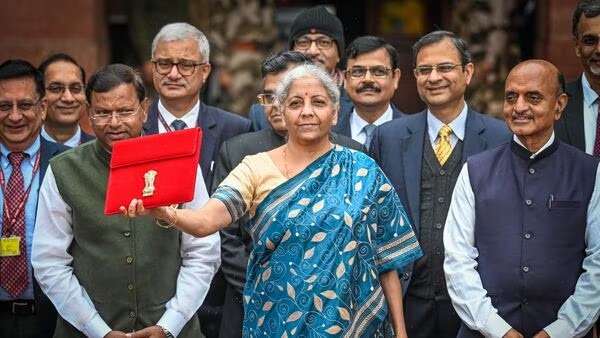
Textile industry addresses interim Budget
NEW DELHI : Welcoming the interim Union Budget 2024 presented by Finance Minister Smt Nirmala Sitharaman and reacting on the extension of Rebate of State and Central Taxes and Levies (RoSCTL), Sudhir Sekhri, Chairman AEPC said, “This scheme will help the Apparel Industry immensely to plan the business on a consistent basis while staying competitive. At a time when the traditional markets of the USA and EU are facing unprecedented recessionary trends, the extension of this scheme for next two years has brought much- needed relief to the industry.”
RoSCTL scheme is essentially to rebate all embedded State and Centre taxes and levies on garment and made- ups to enhance competitiveness. Allocation of funds for the Rebate of State and Central Taxes and Levies (RoSCTL) scheme has been increased from Rs. 8404.66 crores to Rs. 9246 Crores in the union Budget 2024-25.
Sanjay Jain, Managing Director, TT Limited had a mixed reaction to the interim Budget, he was positive about the allocations to cotton procurement and increases to RoSCTL and RoDTEP and PM MITRA allocations as well as emphasis on technical textiles. However, he was disappointed that no action was taken on removal of import duty on raw cotton and putting minimum import duty on knitted fabric imports.
Confederation of Indian Textile Industry (CITI) Chairman Rakesh Mehra congratulated the Government on the interim Budget but said that the industry needs immediate relief from the financial stress, especially in the spinning sector. He expressed hope that the cotton procurement will be as per revamped policies recommended by user industry associations to ensure price stability and discourage speculative trading. CITI has recommended commencing selling the cotton from February/ March depending upon the arrival pattern, retaining the MSP procured cotton as a buffer stock, releasing the cotton whenever the Indian cotton price exceeds the international price, extending a uniform fee period of 60 days for all the actual users. “While in the present budget, the Government has not made any changes in the existing BCD and Indirect taxation, we are extremely sure that the Government will consider the Industry’s demand to remove the import duty from Cotton and Cotton Waste as also increase the BCD on MMF Yarn from present 5 per cent to 10 per cent to curb cheaper imports and reduce blockage of working capital, in the full budget,” he said.
K. Sundararaman, Chairman, The Southern India Mills’ Association (SIMA) welcomed the interim Union Budget and he has hoped that the demands of the textile industry relating to the raw material issues and few other industry demands might be considered in the full-fledged budget. He welcomed the overall increased allocation of around 27.60 per cent for the Ministry of Textiles for the year 2024-25 when compared the previous year, towards various schemes being operated by them.
He further welcomed the announcement of measures to encourage green power including bio-manufacturing, roof top solar, offshore wind etc., so as to reduce the carbon footprint and appreciated the various pro-active initiatives in the budget to prepare the country for meeting the sustainability goals. He welcomed the continuous efforts made in strengthening the logistics infrastructure facilities, aimed at reducing the transaction cost and thereby increase the global competitiveness of the manufacturing sectors in the country.
Amar Nagaram, Founder and CEO of Virgio, commented on the interim Budget by saying, “Noteworthy initiatives such as green India initiatives, technological advancements, and startup-friendly budgets, including PM Mudra Yojana, which approved 43 crore loans totalling Rs. 22.5 lakh crore for the entrepreneurial aspirations of the youth, have played a pivotal role in the country’s economic progress. Additionally, schemes like Fund of Funds, Startup India, and Start-Up Credit Guarantee have significantly contributed to the advancement of our youth.”

